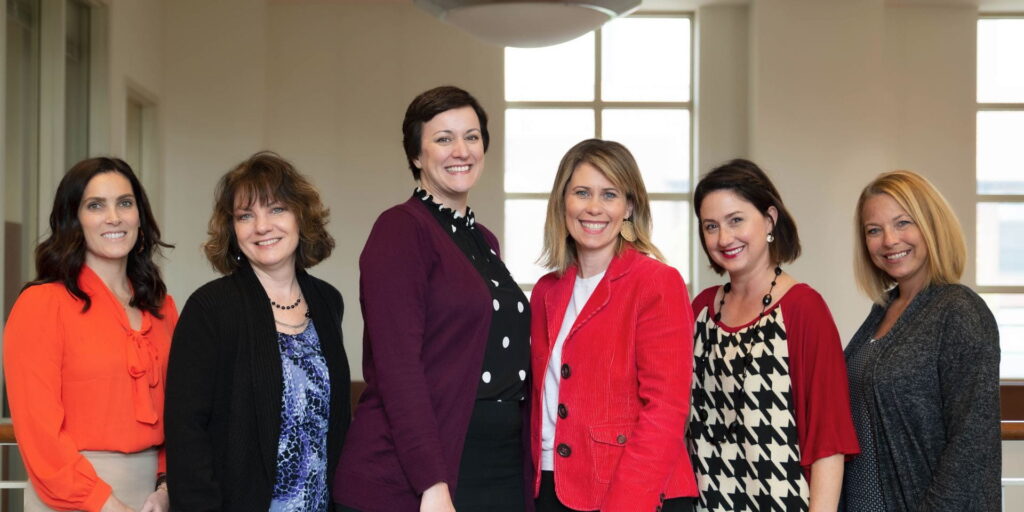The Washington University School of Medicine offers a number of degrees in clinical care specialties. One of the fastest growing programs is one known as PACS, the Program in Audiology and Communication Sciences.
The program currently boasts 99 students of specialty training in audiology (52 students), deaf education (26 students), and hearing sciences (one PhD student and 20 participating in an undergraduate minor program). Graduate students represent more than 40 undergraduate institutions, from UCLA to the University of Connecticut.
The program was ranked third in the most recent US News & World Report evaluation of top audiology programs. This was not due to the healthy program size, but due to the collection of unique experiences offered to students here.
PACS students Mary Randall Ivy, Jessica Holth and Charlotte Brown explore the nervous system during the annual Brain Lab event.Coursework in audiology includes more than 100 credit hours of scientifically based, clinical and research-oriented training, offered by experts in the field that include anatomists, biologists, neuroscientists, audiologists, physicians and others.
“Laboratory experiences are a curricular highlight of the program,” said Amanda Ortmann, PhD, who was recently named Director of Audiology. “In order to maximize the benefits of hands-on training, our program has retained its four-year curriculum—in spite of a national movement to shorten programs.”
The Master of Science in Deaf Education (MSDE) is the fastest growing part of the program. This growth represents a unique national need for trained teachers of hearing-impaired students. Grant support from the US Department of Education, Office of Special Education Programs has enabled this growth by providing all MSDE students with financial assistance, according to Heather Grantham, PhD, director of Deaf Education at PACS.
PACS student Caily Nosbisch works with young hearing impaired children at Central Institute for the Deaf.A mecca for deaf education, St. Louis is home to three oral schools for deaf students. MSDE trainees take full advantage of the opportunity to gain valuable experience in these and other school settings across the country.
The MSDE and audiology programs are not isolated from one another. Special Learning Labs place audiology and deaf education students side by side to learn about topics such as hearing device troubleshooting, cochlear implant mapping, and pediatric audiometric testing.
Clinical opportunities are also abundant. Deaf Ed students complete more than 500 hours of teaching in a variety of settings. Audiology students must complete at least 2,500 hours of clinical experience, which can be gained from more than 200 affiliate sites across the country.
The undergraduate minor is the newest addition to PACS and provides Washington University students an important introduction to the fields of audiology and deaf education. Many who participate in the minor program go on to graduate degrees in these fields and speech pathology.
